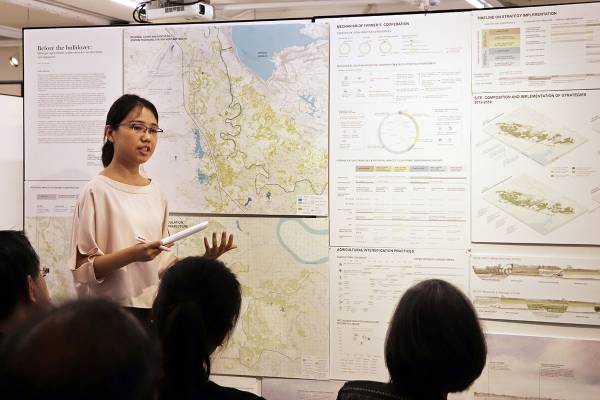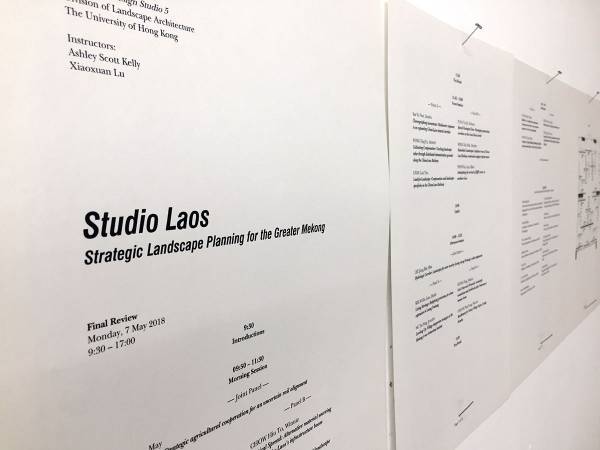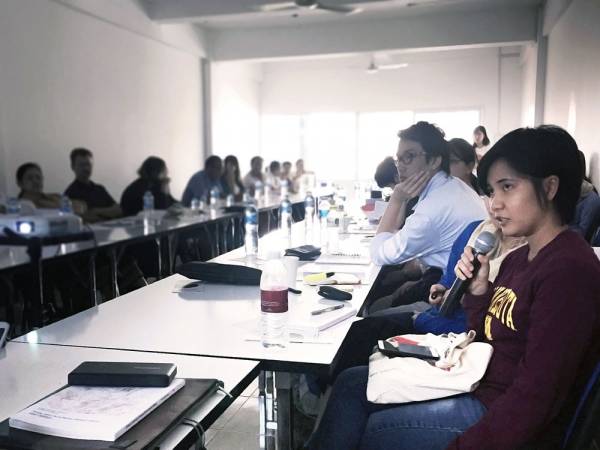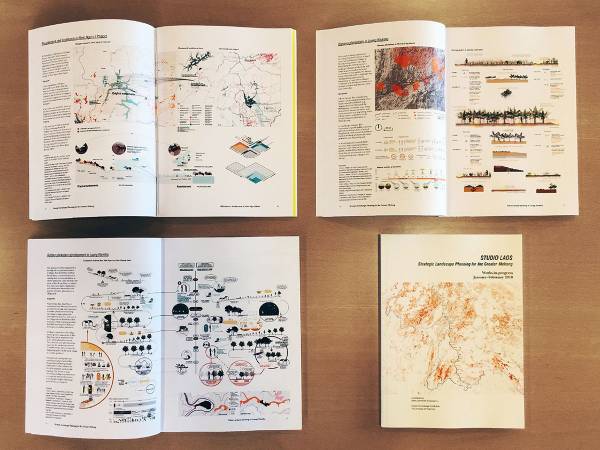Master of Landscape Architecture students presented their projects for Environmental Futures Studio: Design, nature and the erosion of conservation in Hong Kong. Jury members included representatives from Hong Kong's Agriculture, Fisheries and Conservation Department, The Nature Conservancy (TNC), Greenpeace, HKU ecologists and land development experts, and local civil society, including Designing Hong Kong and the Hong Kong Wetland Conservation Association.
During the term, students were immersed in the methods and tools of other disciplines engaging development, including: 1) Landscape and biodiversity modelling techniques for measuring connectivity, fragmentation, and species richness, questioning issues of data quality, scientific bias, reductive methodologies, and disciplinary blindspots; and 2) Concepts from anthropologist Tim Choy's book "Ecologies of Comparison: An Ethnography of Endangerment in Hong Kong", in which students developed critical understandings of public participation and environmental advocacy, including expertise, evidence, discourse analysis, counter-knowledge, and universal values. These exercises were complemented by seminars on Hong Kong's legal, planning and assessment tools related to conservation, as well as discussions on disciplinary boundaries of sustainability sciences to help students better articulate their own expertise as landscape architects and planners.
For the second half of the term, the 12 students designed scenarios of development and environmental value in major conservation issues in Hong Kong. Some examples included:
- Redrawing ecological baselines of agricultural and wetland development sites in Yuen Long, based on more thorough understandings of specific sites' environmental histories;
- Salvaging science and challenging transparency through scenarios of developmental and environmental uncertainty in Tai Ho Wan;
- Problematizing the timescales of ecology and development planning (e.g., public participation, judicial review, ecological assessment) at eight sites of green belt conversion in Tai Po;
- Debating conservation outcomes under hypothetical agricultural land banking and release mechanisms in Yuen Long, triggered through enforcement of high and low EIA standards;
- Exploring alternatives to habitat-based ecological assessment at Sha Lo Tung; and
- Challenging definitions of "conservation" and "public" through priority-setting, monitoring, and alternative management of landscapes along country park edges.
Thank you to students and their panelists for an engaging discussion!





Posted by: Ashley Scott Kelly (Design for Conservation)
















